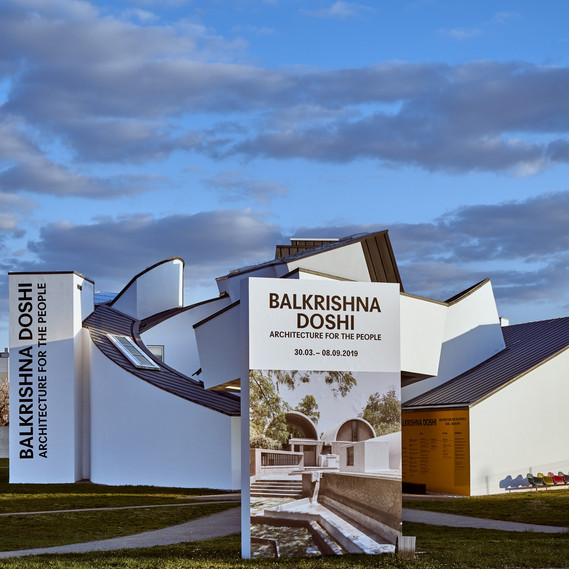Curator's Statement
Khushnu Hoof, curator of the exhibition
»Balkrishna Doshi: Architecture for the People«
Balkrishna Doshi (born 1927) is indisputably one of the most important architects of the twentieth century, who as a theoretician and teacher has influenced several generations of architects. In hundreds of projects he has shown how a house can be made into a home and create a sense of identity and belonging, how liveable cities and lively urban neighbourhoods can be conceived on the drawing board, and how architecture can be employed for the establishment of adaptable institutions. It is all the more astonishing that his work was not very know outside of India for many years. This can be readily explained by the proliferation of monumental ‘beacon’ architecture since the mid-1990s, which in its global uniformity has largely ignored local conditions and the specific needs of people. By contrast, Doshi has always designed from the conscious perspective that architecture is an instrument with societal and humanistic implications – and never merely an end in itself.
The common denominator in Doshi’s projects, therefore, is not a uniform aesthetic or signature style, as practised by many prominent architects, but an awareness of the architect’s responsibility – whose work, in comparison to other art forms, has the strongest impact on people’s everyday lives. Doshi’s architecture emanates a sense of duty, placing itself in the service of humanity and society as a whole, while remaining in the background to the greatest possible extent. It seeks ways to convey humanity and integrity through the built environment. It continually strives to find new connections between local needs and global viewpoints, between innovative technologies and traditional crafts. Doshi does not regard architecture as a product, but as a living, evolving organism, whose single constant attribute is its participatory approach to adapt and grow.
Duration of the exhibition: 30.03.2019 – 08.09.2019
Find more information here.
